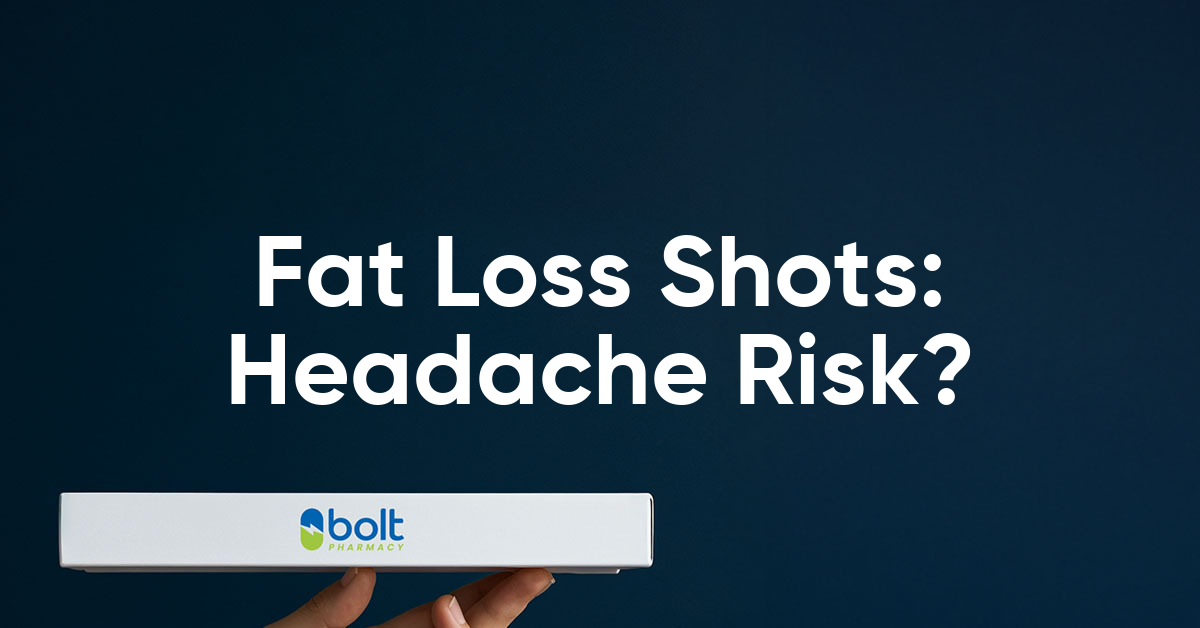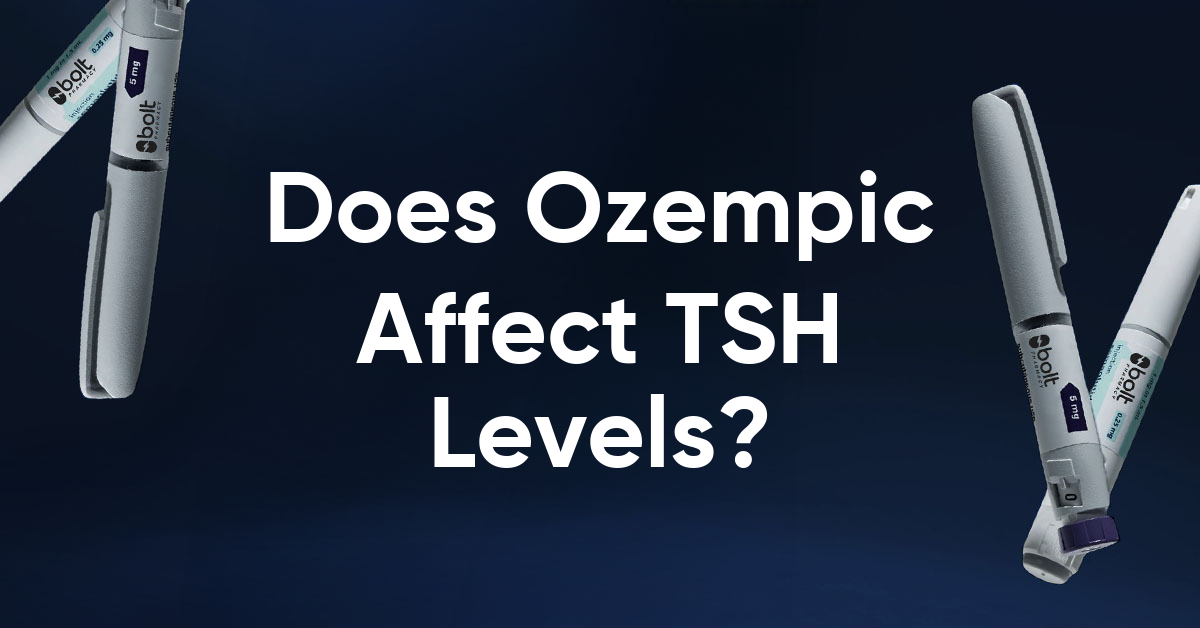Can weight loss injections cause headaches? Yes, headaches are a recognised and commonly reported side effect of GLP-1 receptor agonist injections used for weight management in the UK. Medications such as semaglutide (Wegovy) and liraglutide (Saxenda) list headaches as a 'common' adverse reaction in their Summary of Product Characteristics. Most headaches are mild to moderate, typically occurring during initial treatment or dose escalation, and often resolve as the body adjusts. Understanding when headaches are manageable and when they require medical attention is essential for safe treatment. This article examines the evidence, management strategies, and guidance for patients experiencing headaches with weight loss injections.
Summary: Weight loss injections, particularly GLP-1 receptor agonists such as semaglutide and liraglutide, commonly cause headaches as a recognised adverse effect.
- Headaches are classified as 'common' side effects in the Summary of Product Characteristics for semaglutide (Wegovy) and liraglutide (Saxenda).
- Most headaches are mild to moderate, occurring during initial treatment or dose escalation, and often diminish as the body adjusts to the medication.
- Management includes adequate hydration, over-the-counter analgesia such as paracetamol or ibuprofen, and lifestyle modifications including regular meal patterns.
- Seek urgent medical attention for severe sudden headaches, visual disturbances, fever with neck stiffness, neurological symptoms, or headaches during pregnancy.
- The mechanisms are not fully understood but may involve GLP-1 receptor distribution in the central nervous system, gastrointestinal effects, dehydration, or vascular changes.
Table of Contents
Can Weight Loss Injections Cause Headaches?
Yes, weight loss injections can cause headaches as a recognised adverse effect. Headaches are among the commonly reported side effects associated with glucagon-like peptide-1 (GLP-1) receptor agonists used for weight management in the UK. Clinical trial data and post-marketing surveillance consistently identify headaches as an adverse reaction, though the severity and duration vary considerably between individuals.
According to the Summary of Product Characteristics (SmPCs), headaches are classified as a 'common' side effect of GLP-1 medications used for weight management. Most headaches associated with these treatments are mild to moderate in intensity and tend to occur during the initial weeks of treatment or following dose escalation. For many patients, headaches diminish as the body adjusts to the medication, though the timeframe varies between individuals.
It is important to distinguish between common, transient headaches and more serious symptoms. Whilst mild headaches are generally manageable and do not necessitate treatment discontinuation, persistent or severe headaches warrant medical review. Patients should seek urgent medical attention if headaches are severe and sudden (thunderclap), accompanied by visual disturbances, fever with neck stiffness, neurological symptoms, occur after head injury, or during pregnancy/postpartum. For less severe but persistent headaches, contact your GP or prescribing clinician. The MHRA product information advises healthcare professionals to counsel patients about expected side effects before initiating treatment, enabling informed decision-making and appropriate symptom management.
Which Weight Loss Injections Are Linked to Headaches?
Semaglutide (Wegovy) and liraglutide (Saxenda) are the primary weight loss injections licensed in the UK for weight management, and both list headaches as a recognised adverse effect in their Summary of Product Characteristics (SmPC). These medications belong to the GLP-1 receptor agonist class.
Semaglutide, administered once weekly at doses up to 2.4 mg for weight management, lists headache as a 'common' side effect in its SmPC. The STEP (Semaglutide Treatment Effect in People with obesity) programme demonstrated that headaches were more frequent during the dose-escalation phase. Liraglutide, given as a daily injection up to 3.0 mg, similarly classifies headache as a 'common' side effect in the SCALE (Satiety and Clinical Adiposity – Liraglutide Evidence) trials.
Tirzepatide (Mounjaro) is currently licensed in the UK for type 2 diabetes management, not for weight management. In its diabetes indication, headache is listed as a common side effect. The SURMOUNT clinical trials investigating tirzepatide for weight management have reported headaches in participants, but this remains investigational for this indication in the UK.
The frequency and severity of headaches appear broadly comparable across the GLP-1 receptor agonist class, suggesting a class effect rather than a medication-specific phenomenon. There are no head-to-head comparative studies specifically examining whether one GLP-1 medication causes fewer headaches than another, though individual patient responses vary. Patients experiencing problematic headaches with one agent should discuss this with their healthcare provider, as treatment adjustments should only occur under medical supervision.

How to Manage Headaches from Weight Loss Injections
Most headaches associated with weight loss injections can be managed effectively with simple measures and do not require treatment discontinuation. The first-line approach involves ensuring adequate hydration, as GLP-1 receptor agonists can reduce fluid intake through appetite suppression and may cause mild dehydration, particularly if accompanied by nausea or vomiting. The NHS recommends 6-8 glasses of fluid daily; your urine should be pale yellow in colour.
Over-the-counter analgesia is appropriate for mild to moderate headaches. Paracetamol (500–1000 mg up to four times daily, maximum 4g in 24 hours) or ibuprofen (200–400 mg up to three times daily with food, maximum 1.2g in 24 hours) can provide effective relief. Ibuprofen should be used with caution if you have gastrointestinal problems, kidney disease, asthma, or are taking certain medications including anticoagulants. Patients should follow standard dosing guidelines and check with a pharmacist if unsure about interactions with existing medications. Maintaining a headache diary can help identify patterns, triggers, or associations with injection timing or dietary changes.
Lifestyle modifications may reduce headache frequency and severity. These include maintaining regular meal patterns despite reduced appetite, avoiding prolonged fasting, ensuring adequate sleep (7–9 hours nightly), and managing stress through relaxation techniques. Some patients anecdotally report that administering injections in the evening rather than morning affects headache patterns, though there is no official guidance supporting optimal injection timing for headache prevention.
When to seek medical advice: Contact your GP or NHS 111 if headaches persist beyond the initial weeks, worsen over time, or require increasing analgesia. Seek immediate medical attention (999 or A&E) for thunderclap headache (sudden, severe), new neurological symptoms, headache with fever and neck stiffness, following head injury, or during pregnancy/postpartum. NICE guidance emphasises the importance of regular monitoring during weight management treatment, and persistent headaches should be discussed at follow-up appointments. Any dose adjustments should only be made according to the prescribing information and under healthcare professional guidance.
Why Do Weight Loss Injections Trigger Headaches?
The precise mechanisms underlying headaches with GLP-1 receptor agonists are not fully understood, but several hypothetical pathways have been proposed. GLP-1 receptors are distributed throughout the central nervous system, including areas involved in pain processing and vascular regulation. Activation of these receptors may potentially influence neurotransmitter systems, cerebral blood flow, or pain perception pathways, though these mechanisms require further research.
Gastrointestinal effects represent another plausible hypothesis. GLP-1 receptor agonists slow gastric emptying and reduce appetite, which can lead to altered eating patterns, reduced caloric intake, and potential nutritional imbalances during the adjustment period. Dehydration secondary to reduced fluid intake, nausea, or vomiting may contribute to headache development. Changes in dietary patterns may also trigger headaches in susceptible individuals.
Vascular mechanisms have been hypothesised but remain speculative. Some research suggests that GLP-1 receptor activation might influence vascular tone and endothelial function, potentially affecting cerebral blood vessels. The temporal relationship between dose escalation and headache occurrence supports the hypothesis that these symptoms relate to the body's adaptation to pharmacological GLP-1 receptor stimulation.
Individual susceptibility factors likely influence headache risk. Patients with a history of migraine, tension-type headaches, or medication-related headaches may be more vulnerable. There is no definitive evidence establishing specific risk factors, but clinical experience suggests that gradual dose titration, as recommended in prescribing guidelines, may help the body adapt. It's worth noting that GLP-1 receptor agonists rarely cause hypoglycaemia unless combined with insulin or sulfonylureas, so this is an unlikely cause of headaches for most patients.
If you experience side effects from any medication, you can report them through the MHRA Yellow Card Scheme, which helps monitor medication safety.
Frequently Asked Questions
How long do headaches from weight loss injections typically last?
Most headaches associated with GLP-1 weight loss injections are mild to moderate and tend to occur during the initial weeks of treatment or following dose escalation. For many patients, headaches diminish as the body adjusts to the medication, though the timeframe varies between individuals.
Can I take paracetamol or ibuprofen for headaches caused by weight loss injections?
Yes, over-the-counter analgesia such as paracetamol (up to 4g in 24 hours) or ibuprofen (up to 1.2g in 24 hours with food) is appropriate for mild to moderate headaches. Always follow standard dosing guidelines and consult a pharmacist if you have concerns about interactions with existing medications.
When should I seek medical help for headaches whilst taking weight loss injections?
Seek immediate medical attention (999 or A&E) for sudden severe headaches, visual disturbances, fever with neck stiffness, neurological symptoms, or headaches during pregnancy. Contact your GP or NHS 111 if headaches persist beyond initial weeks, worsen over time, or require increasing analgesia.
The health-related content published on this site is based on credible scientific sources and is periodically reviewed to ensure accuracy and relevance. Although we aim to reflect the most current medical knowledge, the material is meant for general education and awareness only.
The information on this site is not a substitute for professional medical advice. For any health concerns, please speak with a qualified medical professional. By using this information, you acknowledge responsibility for any decisions made and understand we are not liable for any consequences that may result.
Heading 1
Heading 2
Heading 3
Heading 4
Heading 5
Heading 6
Lorem ipsum dolor sit amet, consectetur adipiscing elit, sed do eiusmod tempor incididunt ut labore et dolore magna aliqua. Ut enim ad minim veniam, quis nostrud exercitation ullamco laboris nisi ut aliquip ex ea commodo consequat. Duis aute irure dolor in reprehenderit in voluptate velit esse cillum dolore eu fugiat nulla pariatur.
Block quote
Ordered list
- Item 1
- Item 2
- Item 3
Unordered list
- Item A
- Item B
- Item C
Bold text
Emphasis
Superscript
Subscript












